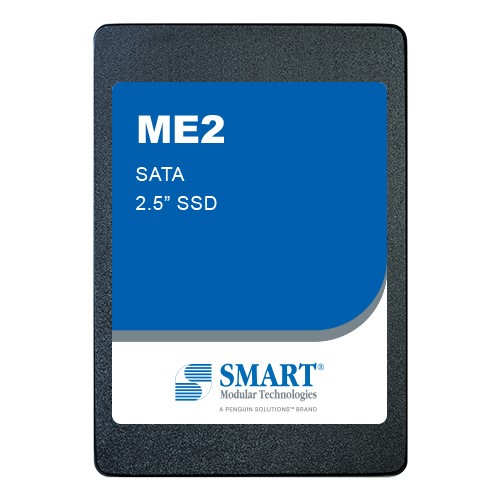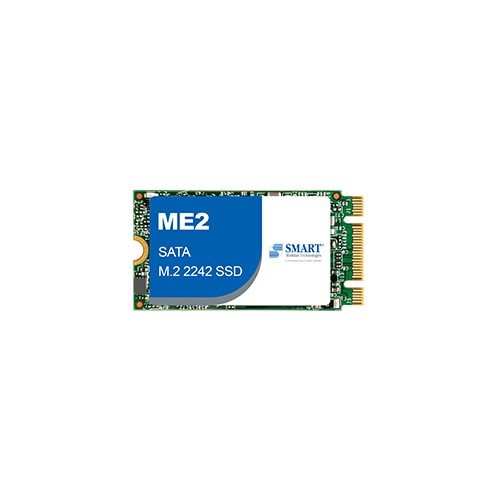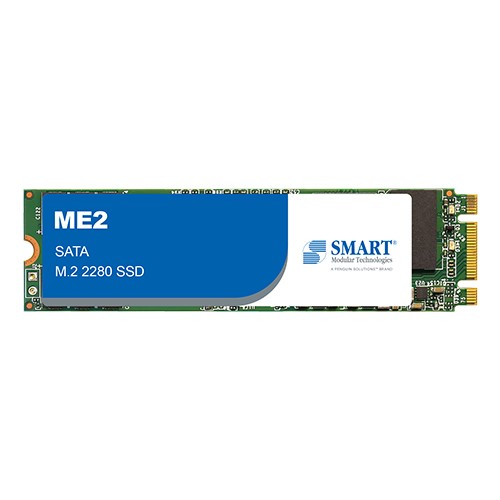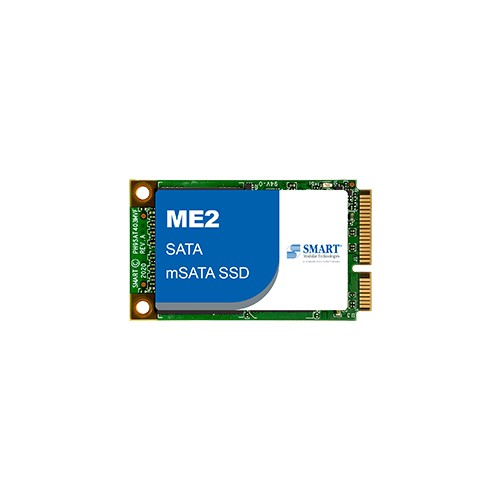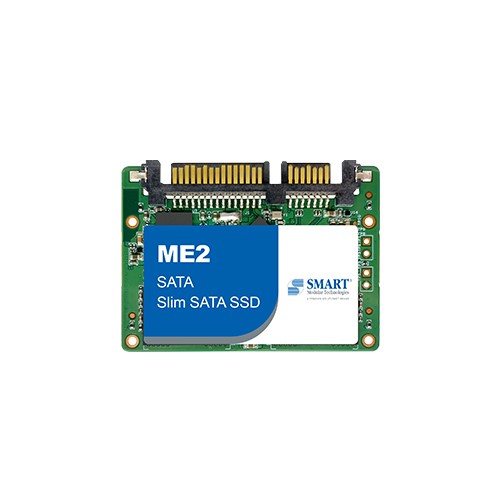SMART’s industrial ME2 SATA SSDs incorporate the latest generation 3D NAND-technology and SMART Modular’s proprietary NVMSentry™ firmware to deliver high performance SSD products with endurance up to one drive write per day (1 DWPD) for five years. The new ME2 industrial SSDs offer better cost per bit over previous 64-layer and 96-layer NAND generations without sacrificing performance and reliability. Further optimization of the NVMSentry firmware also yields optimization in read and write performance, power consumption, or other features over wide ranges of applications.


NVMSentry™ Firmware for Customization Support
NVMSentry provides the full package of advanced firmware features for specific customization requirements and optimized product performance. Incorporating SMART’s proprietary NVMSentry firmware along with a best-in-class SSD controller, the ME2 SATA SSDs offer exceptional performance while providing the flexibility and optionality for mission critical applications.

SafeDATA™ Power Loss Data Protection Technology
The ME2 SATA 2.5" SSDs and M.2 2280 SSDs are offered optional SafeDATA™ technology, which adds another layer of protection for data. SafeDATA technology is a robust system of hardware and firmware that have SMART SSDs operate safely during any events of unexpected power loss. It guarantees the end-to-end data integrity and prevents drive corruption due to the loss of critical data during the unexpected shut down.

AES-256 Encryption for Data Security
The ME2 SATA SSDs come with AES 256 encryption and ATA security features commands for data security and data sanitization. AES is a hardware-based encryption method for converting data from an unencrypted into an encrypted format. 256 bits encryption key length makes it virtually impossible to decrypt the data without the original key.

1 DWPD (Drive Write Per Day)
SMART’s ME2 SATA SSDs deliver high performance with endurance up to 1 DWPD for five years. DWPD allows users to calculate the number of times the drive can be written per day, based upon the JEDEC workload used to specify the TBW.

SEU Mitigation Technology
SEU poses a significant threat to electronic devices, particularly SSDs, by causing temporary errors due to cosmic rays from space or Alpha particles from radioactive impurities. Engineered with advanced SEU mitigation technology, SMART's ME2 SATA SSDs deliver exceptional reliability and performance, for the most demanding environments. Learn More

